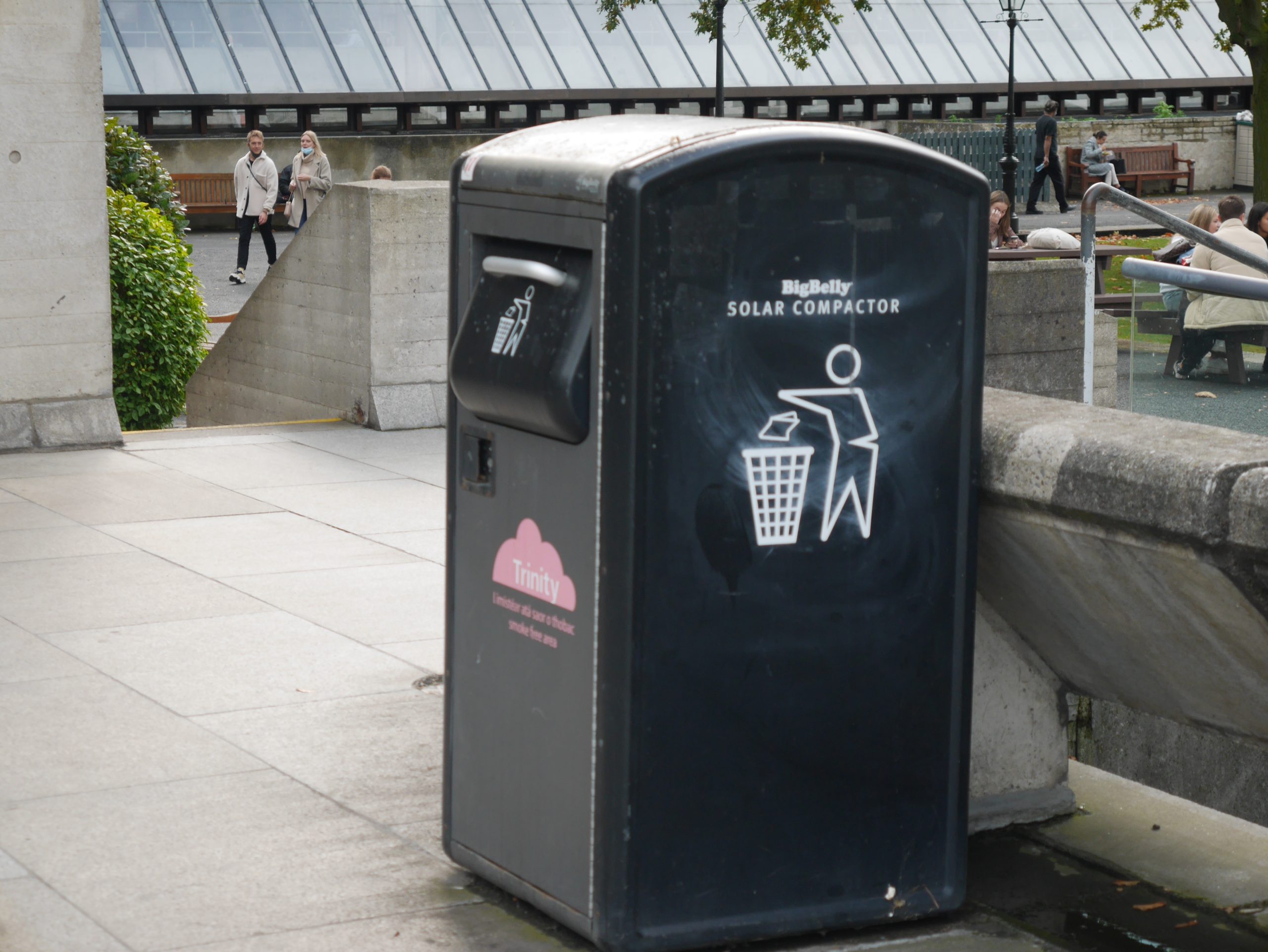Since January of this year, University College Cork (UCC) has adopted a campus-wide plastic-free policy. The college has eliminated several single-use plastic products from on-campus dining areas, shops and vending machines in order to cut down UCC’s waste of disposable plastics. The college estimates that it will save more than 140,000 plastic bottles and 370,000 coffee cups per year from going to waste.
UCC is the first university on the island of Ireland to implement this ambitious policy of cutting out single-use plastics. Though there are still some single-use plastic products available for purchase on UCC campus, this policy has moved UCC to be a global leader of sustainability within universities and other higher education institutions.
One might question why Trinity College Dublin, Ireland’s highest globally ranked university, hasn’t followed suit and implemented a similar policy on their own campus.
If College were to implement a plastic free policy, they face the notable challenge of not only being a plastic-free educational institution but also being a plastic-free major tourist attraction. Over two million tourists visit Trinity every year; catering to visitors who may not be aware or prepared for a potential single-use plastic-free campus certainly presents a challenge.
However, turning an institution attended by thousands of students and visited by millions of tourists would create huge changes, both in terms of material output and by presenting a climate-focused attitude that can influence other institutions in Ireland. What viable solutions exist to remedy the challenge of tourism when eliminating single-use plastics from campus?
One way College can improve their waste management is by taking inspiration from other third-level institutions. KSG, UCC’s catering partner, provides a reusable cup “deposit and return scheme” in all of their on-campus outlets. This allows students, staff and guests to use a reusable cup with the deposit of €2, eliminating the need to distribute single-use plastic items to visitors.
Alongside this practical measure, heavy publicity of the new policy by College would be essential so that visitors are informed of Trinity’s single-use plastic free status beforehand and can prepare accordingly. The UK Natural Museum of History, for example, stopped selling single-use plastic water bottles in 2018, while their membership packages, including cards and brochures, are all made from 100% recycled and biodegradable materials.
Additionally, the installation of more water fountains in areas on campus that aren’t necessarily student spaces will allow visitors to use reusable bottles instead of needing to purchase a single-use bottle. The Trinity College Dublin Students’ Union (TCDSU) shop, for example, is frequently used by tourists who; a water fountain nearby would easily lower the rate at which single-use bottles are bought on campus.
However, like most major changes on university campuses, the initiative to reduce single use plastic waste in UCC began through student action. The campaign to remove single-use plastics from UCC campus began in 2018. The University College Cork Student Union (UCCSU), acknowledging the environmental harm of plastic pollution, launched a petition to make the campus free of single use plastics by 2023.
The petition garnered over eight thousand signatures and multi-layered collaboration of the University Leadership Team, SUP Action Group and UCC Green Campus took on the task of implementing this policy with the consideration of different aspects of student life.
The initiative received support from the top of campus hierarchy, with UCC President, Professor John O’Halloran, stating, “We cannot continue to overconsume plastic in the name of convenience. In the areas of research and action towards the transition to a more sustainable society, UCC will continue to lead and hopefully inspire action.”
It is clear that if the Trinity student body wishes to bring in a similar policy, the process must begin with students and more specifically the Trinity College Dublin Student Union (TCDSU).
With the TCDSU sabbatical officer elections just passed, there was a notable absence of single use plastic-free policies from the manifestos of most candidates running, suggesting a more sustainable campus is not a priority of several of our current and incoming student representatives.
With TCDSU’s notable history of being at the forefront of progressive campaigns, from abortion rights to marriage equality, it could be seen as surprising that there has been no notable action from recent student unions to address College’s single-use plastic waste.
As a collective student body, it is clear that we must call on our representatives to prioritise cutting down our campus waste if we want to create a more sustainable campus
Removing single-use plastics from Trinity campus will certainly be an arduous task. As we saw in UCC, the process of introducing their single-use plastic free policy took nearly five years to implement and cross collaboration from several groups on campus.
However, as the effects of the plastic pollution continue to have increasing harm on the environment and the effects of climate change worsen, it is an essential policy for Trinity to consider if we truly want to move to being a more sustainable and environmentally-conscious campus and educational institution.






